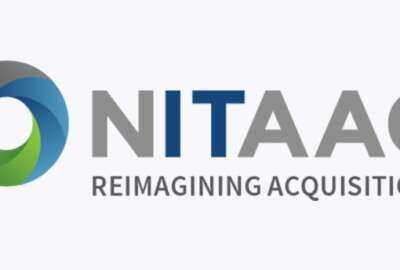

The National Institutes of Health Acquisition and Assessment Center (NITAAC) made changes to the CIO-SP4 solicitation last week that is causing major concerns among...
CIO-SP4 was supposed to revolutionize governmentwide acquisition contracts. With its $50 billion ceiling and 10-year lifecycle, it was supposed to be innovative for both small businesses and agency buyers alike. And it was bringing some new life to an acquisition approach that hasn’t necessarily changed much in more than 25 years.
But with about a week until solicitation proposals are due, the National Institutes of Health Acquisition and Assessment Center (NITAAC) is facing a backlash from industry and other experts after making last minute changes to the request for proposals. Not only are two trade associations calling for NITAAC to push back the proposals deadline, but they also want the contracting office to reengage with bidders to discuss the significant changes made to the RFP about a week before bids were due.
“When you have an RFP that comes out as final on May 25 and then on June 22, provide amendment three and on June 24, provide an amendment four, you’re changing the goal line for a lot of these companies, and who have used the past interactions over the last year or so with NITAAC in the draft RFP stage of the game to really structure their approach, and then basically a few days before the due date, you tell them that they no longer have to be saddled with that approach, they could actually change it up a bit, that is not the consistency that contractors need and look for from a government customer,” said Stephanie Kostro, the Professional Services Council’s executive vice president for policy, on the Federal Drive with Tom Temin. “People were excited to have the final RFP come out, but it was really a surprise in many ways. One additional aspect that I think listeners might be interested in is that during a Q&A session, prospective vendors or prospective offers submit questions to a government customer, and they hopefully will get a response. What NITAAC did in releasing responses is they combined questions. So if you’re a prospective offer, and you’re looking for an answer to your question, it’s combined with another company’s question, it may not be answered fully, it may not be answered at all, but NITAAC thinks it was. There was a lot of confusion. The final point I would make is that the RFP itself, even with all of these amendments, remains internally inconsistent regarding requirements. What’s allowable, what’s not?”
PSC sent a letter to NITAAC on Tuesday outlining these and other concerns, including calling on the office to extend the proposal due date to July 30.
The Coalition for Government Procurement, another industry association, also expressed concerns about the changes to the RFP.
Roger Waldron, the president of the Coalition, also called on NITAAC to extend the proposal due date because there are still too many unanswered questions about solicitation.
“Responding to the entire set of solicitation questions is the best interests of NIH, NIH’s GWAC customer base and industry, because it provides the review and information clarification needed to perfect the understanding of the government’s needs,” Waldron said in an email to Federal News Network. “It provides Office of Management and Budget the information necessary to understand and approve the business case for CIO-SP4. Likewise, it promotes competition because, without needed information, the ability of potential offers to prepare responsive, intelligent proposals is compromised.”
He added there are gaps in the solicitation, such as around the subcontracting plans where there is information missing, and inconsistencies, such as around whether or not bidders need to get past performance signatures from customers, that NITAAC needs to address with bidders.
NITAAC acting director Brian Goodger said in an email to Federal News Network that, “The CIO-SP4 RFP is an active solicitation and the question and answer period has ended. As such, we are unable to answer questions directly related to the solicitation. Any questions pertaining to the RFP should be sent to the contracting officer for the solicitation or the CIO-SP4 mailbox at CIOSP4.NITAAC@nih.gov.”
At the heart of the complaints are changes to the Mentor-Protégé requirements.
The draft and initial solicitation let small businesses use any number of examples of past performance from their mentor—which usually is a large business—in their bid. But the changes NITAAC made last week reduced that number to only one instance.
John Shoraka, the managing director of GovContractPros and a former associate administrator of government contracting and business development at the Small Business Administration, called that change “unduly restrictive.”
“This is entirely contrary to SBA’s rules where a procuring activity must consider work done and qualifications held by each partner to the joint venture as that of the joint venture itself,” Shoraka said. “In the current environment, fewer and fewer opportunities are available for small business to participate in the federal market place. As a result of contract consolidation and category management, small business’s ability to participate in the market place has been severely hampered. Small businesses get locked out of ‘best-In-class’ vehicles which, like CIO-SP4, can be up to 10 years long and in excess of $40 billion. The only way many small businesses can be competitive, is by creating a mentor-protégé relationship and bidding as a joint venture. NITAAC’s approach and lack of compliance with SBA regulations is not only detrimental to the small businesses pursuing this opportunity, but NITAAC’s position on this issue, can be detrimental to an entire small business industry and ultimately to competition and the underlying industrial base and supply chain.”
Shoraka added these changes make CIO-SP4 ripe for a pre-award protest.
Cy Alba and Meghan Leemon, attorneys with the law firm Piliero Mazza, wrote in a blog post that NITAAC’s decision potentially renders the prime/subcontractor teaming relationships useless. The decision is sending small businesses scrambling to reform joint ventures or give up pursuit of CIO-SP4 altogether.
“Unfortunately, because the Defense Logistics Agency (DLA) has been taking between 20 and 30 days right now to issue commercial and government entity (CAGE) codes, many firms may not have sufficient time to create the joint ventures and secure the necessary CAGE code to successfully bid the work under this revised RFP,” Alba and Leemon wrote. “We have seen no rationale for these changes other than speculation that this is NITAAC’s attempt to artificially limit competition on CIO-SP4 in violation of the Competition in Contracting Act (CICA).”
Another area of concern Alba, Leemon, PSC and CGP pointed out was the incomplete response to questions from NITAAC.
Alba and Leemon wrote that even when contractors asked NITAAC to clarify what a “clear relationship” means for purposes of claiming corporate experience, the office responded that the “solicitation will be amended to clarify.”
“In reviewing the amended solicitation, NITAAC has added that each example ‘shall convey the offerors specific role in their experience example,’” the attorneys wrote. “In our read, we view the solicitation as requiring offerors to explain how the company whose experience is being claimed participated in the experience example provided.”
PSC and CGP also say NITAAC’s decision to combine answers to questions falls short of full transparency.
“It is difficult to ascertain how NITAAC was able to modify those questions without discussions with offerors regarding their actual intent (vice NITAAC officials’ unvalidated interpretation of their-intent). Moreover, this consolidation of multiple questions renders it difficult to track whether and how NITAAC responded as fully and completely as possible. Questions do not appear as provided, and NITAAC’s responses fail to indicate which questions were included in the consolidation,” Kostro wrote in PSC’s letter to NITAAC. “PSC requests that NITAAC list all original questions as provided by industry partners, along with answers specifically relative to those questions, so that offerors are clear that their question(s) received consideration and a response. If NITAAC needs clarification of intent, that need should be noted for each question requiring such clarification.”
Copyright © 2025 Federal News Network. All rights reserved. This website is not intended for users located within the European Economic Area.
Jason Miller is executive editor of Federal News Network and directs news coverage on the people, policy and programs of the federal government.
Follow @jmillerWFED



